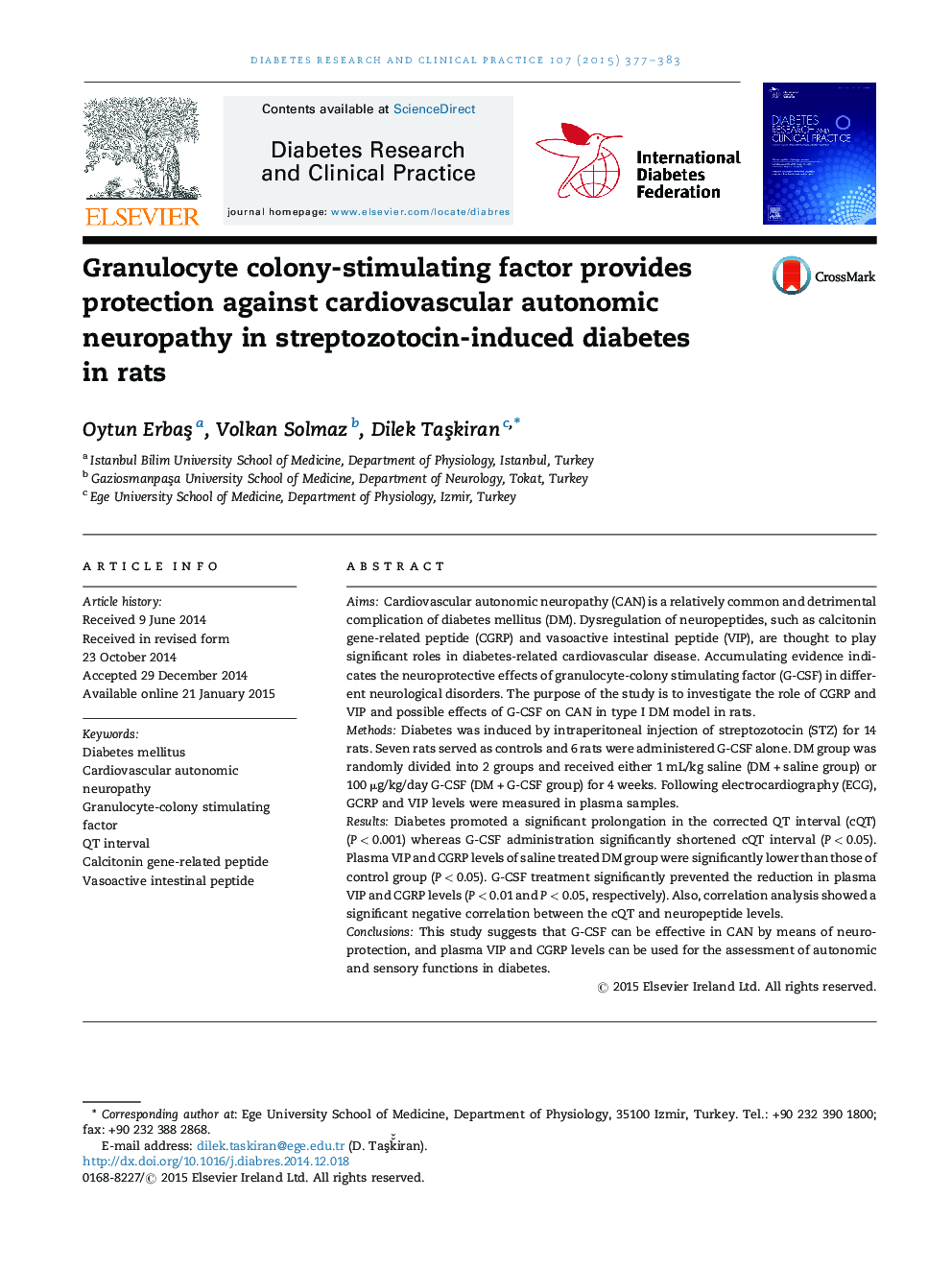| Article ID | Journal | Published Year | Pages | File Type |
|---|---|---|---|---|
| 2796372 | Diabetes Research and Clinical Practice | 2015 | 7 Pages |
•Streptozotocin-induced diabetes caused marked alterations in electrocardiography.•Plasma VIP and CGRP levels were significantly decreased in rats with diabetes.•G-CSF significantly improved electrocardiography findings in rats with diabetes.•G-CSF prevented the reduction in plasma VIP and CGRP levels in diabetes.•G-CSF may have neuroprotective effects in diabetic cardiac autonomic neuropathy.
AimsCardiovascular autonomic neuropathy (CAN) is a relatively common and detrimental complication of diabetes mellitus (DM). Dysregulation of neuropeptides, such as calcitonin gene-related peptide (CGRP) and vasoactive intestinal peptide (VIP), are thought to play significant roles in diabetes-related cardiovascular disease. Accumulating evidence indicates the neuroprotective effects of granulocyte-colony stimulating factor (G-CSF) in different neurological disorders. The purpose of the study is to investigate the role of CGRP and VIP and possible effects of G-CSF on CAN in type I DM model in rats.MethodsDiabetes was induced by intraperitoneal injection of streptozotocin (STZ) for 14 rats. Seven rats served as controls and 6 rats were administered G-CSF alone. DM group was randomly divided into 2 groups and received either 1 mL/kg saline (DM + saline group) or 100 μg/kg/day G-CSF (DM + G-CSF group) for 4 weeks. Following electrocardiography (ECG), GCRP and VIP levels were measured in plasma samples.ResultsDiabetes promoted a significant prolongation in the corrected QT interval (cQT) (P < 0.001) whereas G-CSF administration significantly shortened cQT interval (P < 0.05). Plasma VIP and CGRP levels of saline treated DM group were significantly lower than those of control group (P < 0.05). G-CSF treatment significantly prevented the reduction in plasma VIP and CGRP levels (P < 0.01 and P < 0.05, respectively). Also, correlation analysis showed a significant negative correlation between the cQT and neuropeptide levels.ConclusionsThis study suggests that G-CSF can be effective in CAN by means of neuroprotection, and plasma VIP and CGRP levels can be used for the assessment of autonomic and sensory functions in diabetes.
